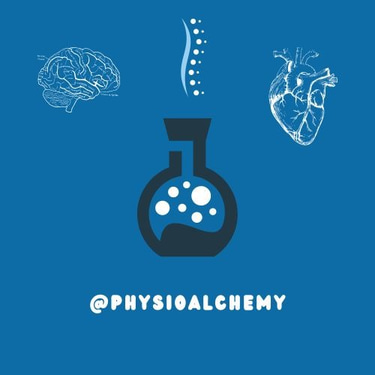Six-Minute Walk Test (6MWT)
STUDY MATERIAL
PhysioAlchemy
7/25/2025


Six-Minute Walk Test (6MWT)
The Six-Minute Walk Test (6MWT) is a simple, non-invasive, and cost-effective assessment used to evaluate the functional exercise capacity of individuals, particularly those with cardiovascular or pulmonary disease. It measures the distance a patient can walk on a flat, hard surface in six minutes, reflecting the global and integrated responses of multiple systems—including the pulmonary, cardiovascular, circulatory, and neuromuscular systems.
Purpose
The primary aim of the 6MWT is to assess submaximal functional capacity. Unlike maximal tests (e.g., treadmill stress tests), it better reflects the physical activities of daily living (ADLs) such as walking, dressing, or light household tasks.
Indications
Chronic heart failure
Chronic obstructive pulmonary disease (COPD)
Pulmonary hypertension
Post-myocardial infarction or coronary artery bypass grafting (CABG)
Pre- and post-cardiac rehabilitation programs
Interstitial lung disease
Evaluation for lung or heart transplantation
Frailty or sarcopenia assessments in elderly populations
Procedure (Based on ATS Guidelines, 2002)
Environment: A 30-meter flat, straight corridor with markings every 3 meters.
Pre-test instructions:
Patient rests for at least 10 minutes before the test.
Measure baseline vitals: heart rate, blood pressure, SpO₂, respiratory rate, and Borg scale for dyspnea and fatigue.
During the test:
Patients are instructed to walk at their own pace, attempting to cover as much ground as possible in 6 minutes.
Standardized encouragement is given at each minute mark.
Patients are allowed to stop or rest if needed but are encouraged to resume walking as soon as they are able.
Post-test:
Record total distance walked (in meters).
Reassess vitals and record any symptoms (dyspnea, fatigue, chest pain).
Document any rest periods and use of supplemental oxygen, if applicable.
Interpretation
Normal values vary based on age, sex, height, and weight. Predictive equations are available.
Reduced distances may indicate impaired functional status or progression of disease.
A change of more than 30 meters is often considered clinically significant in cardiac populations.
Advantages
Safe and well-tolerated
Reflects real-world functional ability
Requires minimal equipment
Reproducible and validated for cardiac rehab outcomes
Limitations
Submaximal test; may not detect mild limitations
Affected by patient motivation
Not specific to any one organ system
Role in Cardiac Rehabilitation
The 6MWT serves as a baseline functional assessment and an outcome measure to monitor improvement across phases of cardiac rehabilitation. It helps physiotherapists and cardiac rehab professionals:
Stratify risk
Tailor individualized exercise prescriptions
Objectively evaluate the efficacy of interventions
Educate patients about their functional progress
Precautions and Contraindications
Absolute Contraindications:
Recent myocardial infarction (within 5 days)
Unstable angina during the previous month
Relative Contraindications:
Resting heart rate >120 bpm
Systolic BP >180 mmHg or Diastolic BP >100 mmHg
Oxygen saturation <85% at rest (unless under physician clearance)
Frequently asked questions
1. Is the 6MWT safe for heart or lung patients?
Yes, it's considered a low-risk test when performed under proper supervision. Patients are continuously monitored, and they can stop anytime if they feel discomfort or fatigue.
2. Do I need to fast or avoid medications before the test?
No fasting is required. Patients should take their routine medications unless advised otherwise. Comfortable clothing and footwear are recommended.
3. What if I use a walking aid or oxygen?
You can use your usual assistive device or prescribed oxygen during the test. It’s important to replicate real-world conditions for accurate results.
4. How long does the entire test take?
The walking part lasts 6 minutes, but including preparation, instructions, and post-test observations, the whole process usually takes about 20–30 minutes.
5. Can the results predict heart disease severity?
The test doesn’t diagnose disease, but the distance walked correlates with exercise capacity and prognosis in many cardiac and pulmonary conditions.
6. What distance is considered 'normal'?
Normal values depend on age, gender, height, and health status. Generally, healthy adults walk between 400 to 700 meters, but lower distances may still be appropriate for patients with cardiac or pulmonary limitations.
Think Anatomically. Treat Clinically.
Our Socials:
© 2025 PhysioAlchemy. All rights reserved.
Legal:
Made with ♥ by physiotherapists, for physiotherapists.
Subscribe to our newsletter:
Enjoy exclusive special deals available only to our subscribers.
